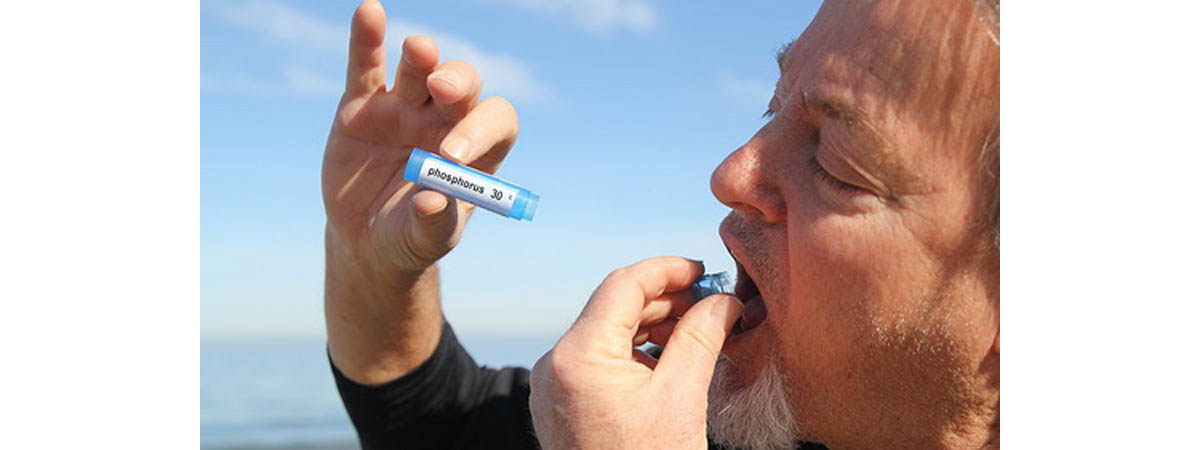Table of Contents
Lung cancer is an especially insidious disease. Usually far advanced before symptoms are noticed, only 1 patient with metastatic lung cancer in every 50 stays alive for 5 years or more after their diagnosis, even with the most advanced medical treatment available today. (Lung cancer patients in the United States, many readers will be surprised to learn, typically live longer than lung cancer patients in other countries.)

A Nevada physician named James Forsythe of the Screening and Treatment Center of the Neavada and Century Wellness Clinic has been getting far better results with a homeopathic treatment, he says, some 39 percent of his patients surviving 5 years or more in a clinical trial concluded in 2010.
Why Is Lung Cancer So Hard to Treat?
Lung cancer is the second most common cancer in both men and women. Every year in the USA alone, about 215,000 people are diagnosed with lung cancer, and about 161,000 people die of lung cancer. Lung cancer is becoming less common among men, but more common among women.
About 85 percent of cancers of the lung are a kind of cancer termed non-small cell lung carcinoma. "Non-small" cells are normal-sized cells that have become cancerous. The other 15 percent of lung cancers of the are small cell lung carcinomas, which consist of tiny cells that have essentially no function except to reproduce. Non-small cell lung cancers don't spread as quickly as do small cell lung cancers, but these forms of cancer are quickly deadly, usually in a year or less.
By the time the condition begins causing the kinds of symptoms we might expect to see in lung cancer cases — such as cough, wheezing, or coughing up blood — tumors have usually grown to the point that they press on blood vessels or will have spread to the brain.
Lung cancer does not respond very well (or at all) to chemotherapy, so the treatment options available to patients are often limited to ever-changing combinations of chemotherapy drugs, surgery, or radiation. Treatment of the top of the lung, of course, disables the entire lung, and is often impossible.
Looking for a Better Way to Treat Lung Cancer
Since treatment for lung cancer can be literally as bad as the disease, Dr. Forsythe started looking for alternative treatment options decades ago. In the late 1990's he was employed by Nature's Sunshine to test a native American fruit, paw paw, as a potential cancer treatment. In a clinical study Forsythe directed, 28 percent of patients survived while taking paw paw for 3 years, without toxic reactions other than mild gastrointestinal upset in about 1 in 4 people who used the herb.
Then in 2004, Forsythe began researching a formula called poly-MVA, which combines alpha-lipoic acid with tiny amounts of the metal palladium. On this potent antioxidant formula, 30 percent of patients diagnosed at stage IV at the beginning of the study lived for 5 years (again, compared to 2 percent in studies examining the results of conventional lung cancer treatment). The FDA took a careful look at the study and allows the product to be sold without objection.
- Sudheesh NP, Ajith TA, Janardhanan KK, Krishnan CV. Effect of POLY-MVA, a palladium alpha-lipoic acid complex formulation against declined mitochondrial antioxidant status in the myocardium of aged rats. Food Chem Toxicol. 2010 Jul.48(7):1858-62. doi: 10.1016/j.fct.2010.04.022. Epub 2010 Apr 20.
- Shneerson C, Taskila T, Gale N, Greenfield S, Chen YF. The effect of complementary and alternative medicine on the quality of life of cancer survivors: A systematic review and meta-analyses. Complement Ther Med. 2013 Aug. 21(4):417-29. doi: 10.1016/j.ctim.2013.05.003. Epub 2013 Jun 3.
- Photo courtesy of Sgerbic by Wikimedia Commons : en.wikipedia.org/wiki/File:Mark_Edward_phosphorus_overdose.JPG
- Photo courtesy of caseywest by Flickr : www.flickr.com/photos/13897254@N00/359144030


Your thoughts on this